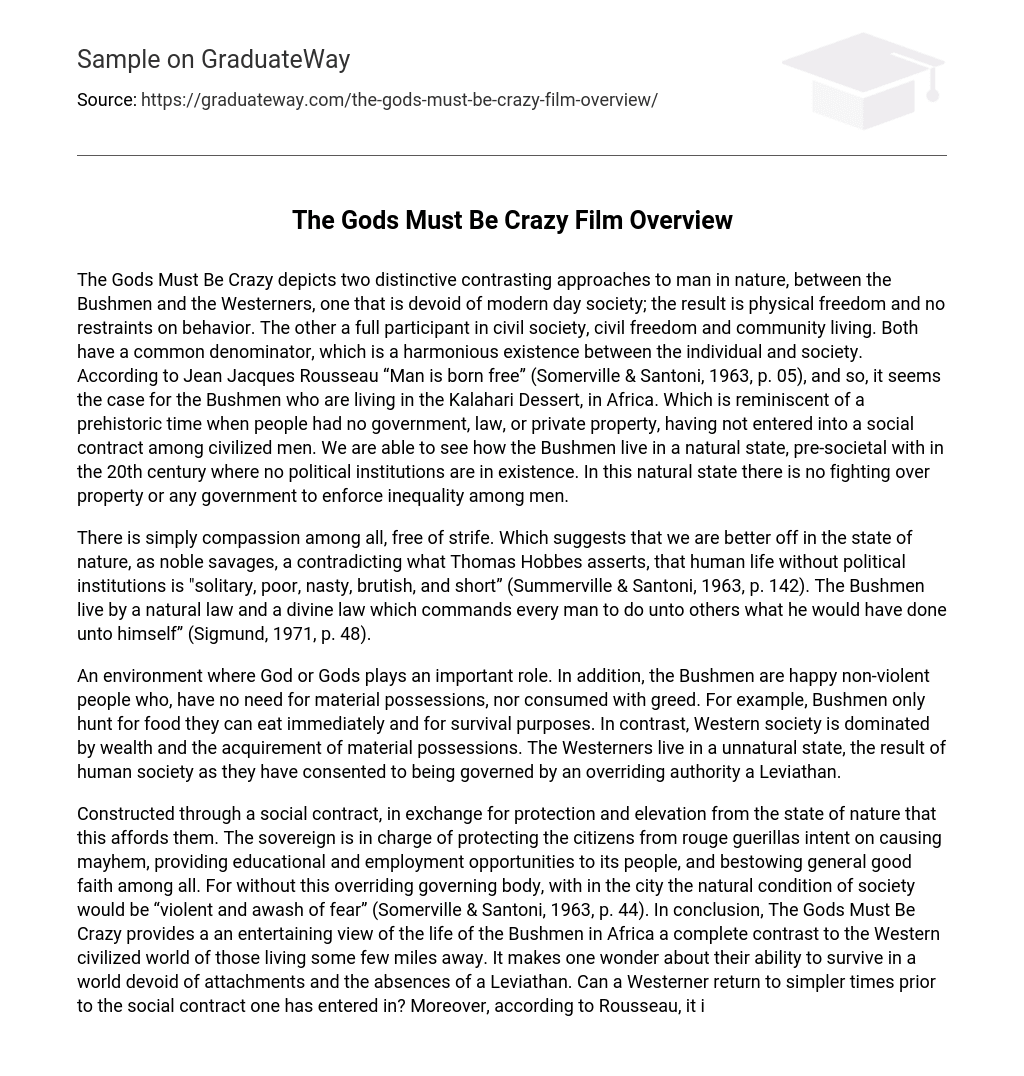The Gods Must Be Crazy depicts contrasting approaches to man in nature, between the Bushmen and the Westerners, one without modern society resulting in physical freedom and unrestrained behavior, and the other as active participants in civil society with community living and civil freedom. Both share a harmonious existence between the individual and society. According to Jean Jacques Rousseau, “Man is born free” (Somerville & Santoni, 1963, p. 05), which rings true for the Bushmen living in Africa’s Kalahari Desert. Their lifestyle is reminiscent of a prehistoric era without government, laws, or private property, where no social contract exists among civilized individuals. We witness how the Bushmen live in a natural state without political institutions in the 20th century. In this state, there is no conflict over property or any form of government enforcing inequality among people.
In contrast to Thomas Hobbes’ belief that human life without political institutions is “solitary, poor, nasty, brutish, and short,” there exists a sense of harmony and compassion among all, reflecting the state of nature as noble savages. This contradicts Hobbes’ assertion and is exemplified by the Bushmen, who live according to a natural law and a divine law that dictates treating others as they would like to be treated.
An environment characterized by the presence of God or Gods is important for the Bushmen. Furthermore, the Bushmen are content and peaceful individuals who do not value material possessions nor are driven by greed. For instance, they solely hunt for food that can be consumed immediately and for survival purposes. On the contrary, Western society revolves around wealth and the accumulation of material possessions. Westerners live in an artificial state that has resulted from human society consenting to being governed by a supreme authority, known as a Leviathan.
The citizens are bound by a social contract with the sovereign, wherein they receive protection and elevation from the state of nature. The sovereign’s responsibilities include safeguarding the citizens from rogue guerillas, providing education and employment opportunities, and fostering general goodwill. Without this governing body, society within the city would descend into violence and fear. The Gods Must Be Crazy offers an entertaining depiction of the life of the Bushmen in Africa, which stands in stark contrast to the Western civilized world nearby. This raises questions about their ability to survive without attachments and the absence of a governing authority. Can Westerners revert to a simpler time before entering into a social contract? According to Rousseau, returning to a natural state is impossible.





